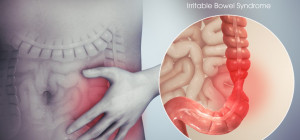 Anyone can get acid reflux. This condition affects over 33 percent of Americans. Even though the condition is widespread, there is a lot of confusion about the proper methods of prevention and treatment. In the next few minutes, you’ll discover a handful of useful tips for battling reflux.
Anyone can get acid reflux. This condition affects over 33 percent of Americans. Even though the condition is widespread, there is a lot of confusion about the proper methods of prevention and treatment. In the next few minutes, you’ll discover a handful of useful tips for battling reflux.
Chew your food. The more you chew your food, the less work your stomach will have to do. This also slows down the rate at which you are eating, which allows your stomach to keep up with its fullness level. Once you’ve eaten enough, your stomach will alert your brain and you’ll feel full.
If you have been having any acid reflux symptoms over an extended period of time, make sure that you go in to be seen by a doctor. You may think that this condition is not that serious, but if it is not treated it can lead to more serious health issues, including ulcers and gastritis.
Your ability to cope with stress can have an impact on your reflux symptoms. When stress rears its head, acid production increases, causing reflux. Follow each meal with a period of relaxation. Watch television, read a book or even meditate to relieve your stress.
The more fluid you drink during your meal, the more volume is placed in your stomach. This causes more distension in the stomach and adds pressure to the lower sphincter of the esophagus, creating the perfect condition for acid reflux. Try drinking between meals and drink water in small sips rather than big gulps.
Try raising your bed’s head. Raise your bed up for your top half using items like heavy books or bed risers. The head of the bed should be approximately six inches higher. This will prevent stomach acid from rising during the night.
If you often have acid reflux, avoid drinking during your meals. A glass of water will add to the volume of food in your stomach and make digestion harder. You should wait until you are done digesting to drink and avoid drinking just before having a meal or a snack.
Keep a journal. If you can track when and what you are doing when you have an acid attack, you might be able to alter your life to eliminate those attacks. Write down what you eat, what you have done that day and if you have had any discomforts. You may be surprised at what you find and how easy it is to eliminate some of your problems.
Have an early dinner. Eating too close to bedtime is a prime cause of acid reflux. If your stomach is still digesting your dinner when you retire, the combination of increased stomach activity and a horizontal position is a recipe for disaster. Try to eat dinner a minimum of three hours before bed.
Acid reflux should never be self-diagnosed. If you believe you may have this condition due to symptoms, such as stomach discomfort and regurgitation, then you should talk to your doctor. Sometimes the culprit is more severe, such as heart disease or peptic ulcers. Your doctor can determine whether you have acid reflux by running tests.
If you suffer from acid reflux you should ask your doctor if you would benefit from having an endoscopy. Diseases such as Barrett’s Esophagus often times go hand-in-hand with acid reflux, and an endoscopy is the only way to really see what is going on. Being proactive with your health can save you from bigger problems down the road.
Avoid high-fat foods. An easy way to do this is to stop eating fast food, red meat and fried foods. You can read the ingredient labels of foods that you are interested in to check the fat level.
Chew gum after your meals. Believe it or not, chewing gum can help alleviate acid reflux because it encourages saliva production. Saliva helps eliminate stomach acid. In addition, you will likely swallow more often, which further helps clear acid. Aim to chew cinnamon or fruit-flavored gum rather than mint because mint could worsen your acid reflux.
Try to eat slowly. Eating too fast will cause acid reflux to strike. If you find that you have trouble with this, make an effort to take a bite and then put your utensil down. This will ensure that you don’t put too much food in your mouth at any given time.
Sleep at least 8 hours at night to help prevent acid reflux in your life. A good amount of rest during the night can help your body to recuperate from the day and get back to 100%. This will aid in reducing the acid in your body, which is a catalyst for acid reflux.
See a doctor if you have blood in your stools or vomit. This means the problem is something more serious than acid reflux, and you may need to undergo testing. If your diagnosis is something other than acid reflux, you may be able to treat your problem quickly and efficiently.
If you struggle with acid reflux, try to avoid using too many antacids. Excessive antacid use can interfere with some mineral and vitamin absorption. If you are dealing with chronic acid irritation it can aggravate your esophagus and cause swallowing problems that are permanent. If you’re experiencing this, you should seek medical treatment.
Never eat less than three hours before your planned bedtime. You activate the digestive tract when you eat. When this occurs, the production of stomach acid starts. Do not eat near bedtime to help reduce stomach acids.
To help avoid the discomfort and pain associated with acid reflux, try to limit your food consumption. When you do not feel hungry anymore, stop eating. Never eat in excess. Your stomach cannot handle these large quantities of food, so only eat until you are satisfied, and not until you cannot eat any more.
Now you know how to get relief? Do you understand what causes acid reflux to become worse? Do you see what to do to combat this? Are you ready to make the changes you need to feel better? If you answered YES, then the time has come to act!







